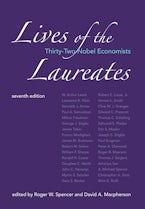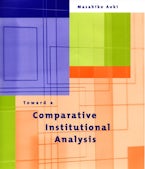A useful book full of careful measurement of the incentives, institutions, and causal flows in the knowledge economy. Shows both the importance of the knowledge economy (now denied by fools on Wall Street) and how sound economic analysis applies to it (recently denied by the same fools.)
Timothy F. Bresnahan, Professor of Economics, Stanford University
Knowledge, which is hard to measure, is the core of modern economic growth. Jaffe and Trajtenberg have assembled the most comprehensive data set on patent citations, which allows them to trace major channels of knowledge creation. This outstanding book, which describes these data and puts them to good use, is a landmark in research on innovation and economic growth.
Elhanan Helpman, Department of Economics, Harvard University, and The Eitan Berglas School of Economics, Tel Aviv University
Since the time of Galileo, Kepler, and Francis Bacon, it has been recognized that scientific knowledge advances through careful measurement. Determining how scientific knowledge affects economic well-being has been a tougher nut to crack. This volume collects pioneering essays on the use of citations data to measure knowledge flows among scientists and engineers and the impact of those flows on economic growth.
F. M. Scherer, Professor Emeritus, John F. Kennedy School of Government, Harvard University
Jaffe, Trajtenberg, and their several co-authors have provided compelling evidence that patent data, combined with citation analysis, can be made to provide powerful insights into the performance of the knowledge economy. This book is, quite simply, required reading for anyone seeking empirical evidence relating to the determinants of economic growth.
Nathan Rosenberg, Professor of Economics (Emeritus), Stanford University
The studies here represent the best recent research using patents to measure inventive activity. The availability of this volume will inspire and assist future research on this important subject.
Martin Feldstein, President, National Bureau of Economic Research, and Professor of Economics, Harvard University
This book is both a major contribution to our understanding of the economic impact of the inventive and innovative activities that underlie economic progress and structural change, and a fitting tribute to the late Zvi Griliches by economists whom he trained. It reports on research based heavily on recent progress in computerizing data on science and technology, and should be read by scholars from all disciplines and all countries who share this endeavor.
Keith Pavitt, R. M. Phillips Professor of Science and Technology Policy, University of Sussex, England
Jaffe and Trajtenberg's use of the citation information on patent documents to indicate who gains from the knowledge creation of others, is a true breakthrough in an important measurement problem. It enables a scientific study of the causes and effects of research activity, and the numerous policy issues associated with the research and innovation process. This book both shows how to use this new data, and provides a diskette which enables us all to incorporate that data in our own future research.
Ariel Pakes, Professor of Economics, Harvard University












